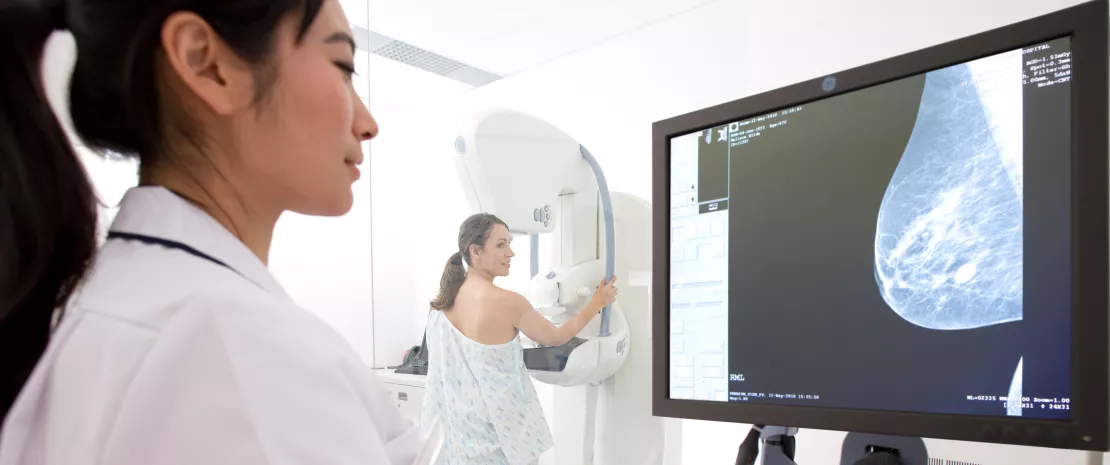A link between postoperative pain, breast cancer and gut microbiota?
It’s a first: a team has identified gut bacteria associated with the presence or absence of persistent post-surgical pain several months after breast cancer surgery.
- Learn all about microbiota
- Microbiota and related conditions
- Act on your microbiota
- Publications
- About the Institute
Healthcare professionals section
Find here your dedicated section
Sources
This article is based on scientific information

About this article
In surgery, persistent post-surgical pain (or PPSP) is defined as pain that remains significant for at least 3 months after surgery.
It's a condition that affects millions of patients around the world, and one that science is still fairly helpless to tackle, even though we know that there are certain predisposing factors (type of surgery, intensity of pain before the operation, the patient's attitude to pain, genetic factors)
However, a new lead is emerging, one that we might not have thought of at first: microbiota, of the gut rather than the breast, and therefore implicitly the famous
(sidenote:
Gut-brain axis
Two-way communication network between the gut and the brain, which allows the gut and brain to communicate via three different pathways:
1. the neuronal pathway (neurons), mainly via the vagus nerve and the enteric nervous system,
2. the endocrine pathway, by secreting hormones such as cortisol, adrenaline and serotonin
3. the immune system pathway, by modulating cytokines
The gut-brain axis influences our behavior, cognition (memory), emotions, moods, desires, perception... and pain, among other things.
)
.
Thus, manipulating the gut microbiota preoperatively with probiotics or prebiotics could reduce the incidence of PPSP. At least, that's what a preliminary study had suggested, showing that certain bacteria in the digestive tract are associated with pain after wrist fracture surgery. And this seems to be confirmed by an Irish study, 1 this time on women who had surgery for breast cancer.
2.3 million In 2022, there were 2.3 million women diagnosed with breast cancer and 670,000 deaths globally ²
1st Breast cancer was the most common cancer in women in 157 countries out of 185 in 2022 ²
99 % Approximately 99% of breast cancers occur in women and 0.5-1% of breast cancers occur in men ²
Gut bacteria associated with the presence or absence of pain
Three months after their operation, half the women reported persistent pain, while the other half were not particularly affected. This difference was linked to the diversity of their gut microbiota: patients reporting severe pain 1 hour and 3 months after surgery had a less diverse gut flora, compared to women with little pain.
Most importantly, certain bacteria appeared to be associated with the presence or absence of persistent post-surgical pain following breast cancer procedures: women who reported no pain 3 months after surgery had more bacteria known for their beneficial effects (Bifidobacterium longum and Faecalibacterium prausnitzii) in their gut, while women with PPSP harbored more Megamonas hypermegale, Bacteroides pectinophilus, Ruminococcus bromii and Roseburia hominis.
A major discovery! But we must caution that these are only associations, not causal links. At this stage, we can't yet say whether a particular bacterium induces or reduces pain.















